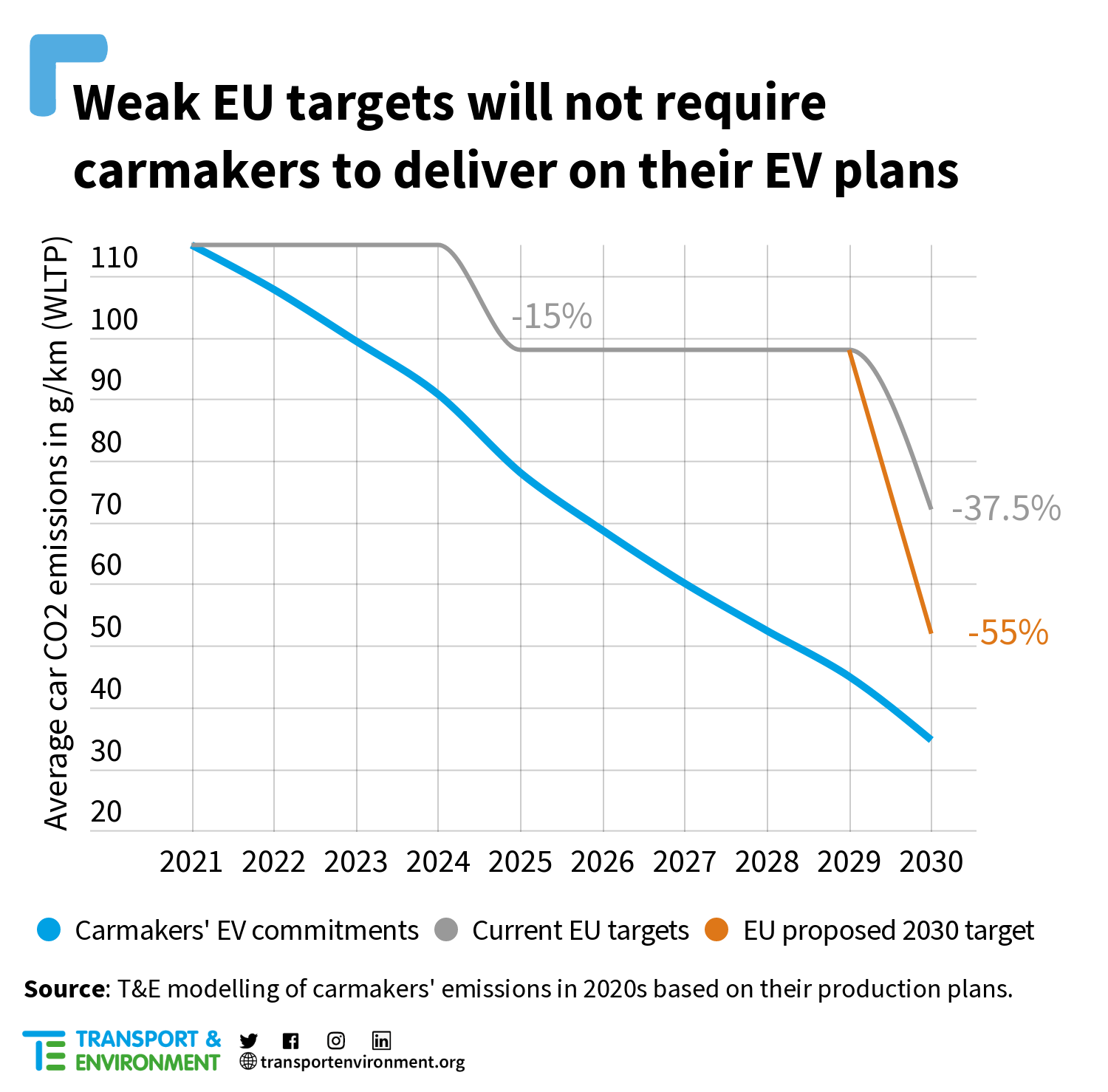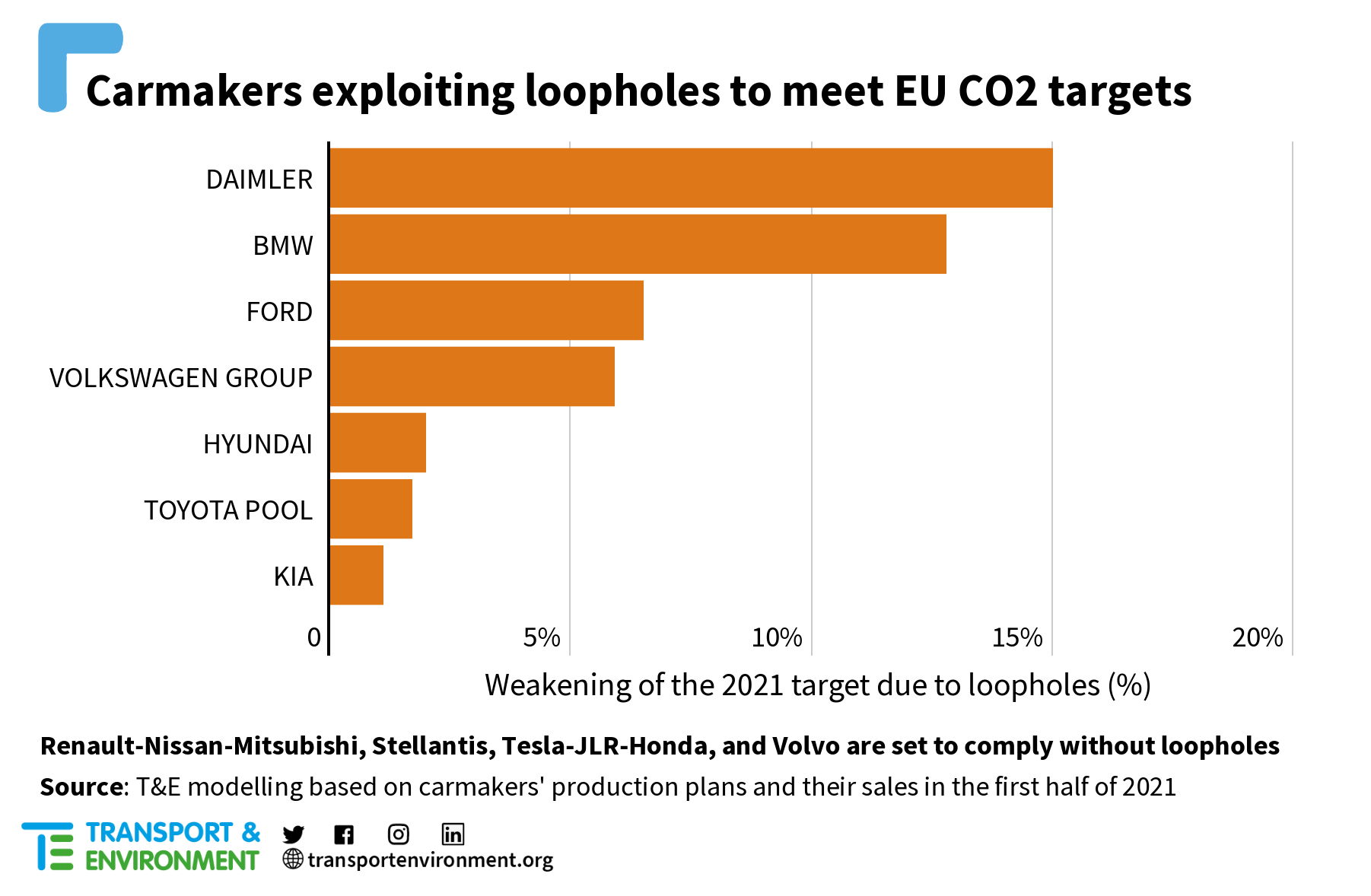Also available in French, German, Italian, Polish and Spanish
Europe’s electric car boom is at risk of stalling, jeopardising the sales of 18 million battery electric vehicles, new data shows. EU clean car rules have driven plug-in vehicle sales to almost one-fifth of the market. But weak targets between 2022 and 2030 will not require carmakers to deliver on their EV production plans and could result in 55 million extra tonnes of CO2 pollution – more than the annual emissions of all the cars in Spain, according to Transport & Environment (T&E) analysis.
The EU’s 2025 target for carmakers is so weak it will be realised two years earlier, the analysis finds. While many EU countries have to almost halve their total emissions by the end of the decade [1], car manufacturers won’t contribute much to this. T&E said that without setting more ambitious carmaker targets from 2025 onwards – including an intermediate goal in 2027 and an 80% car CO2 cut in 2030 compared to today – it will be very hard for member states to reach their proposed national climate goals by 2030.

Alex Keynes, clean vehicles manager at T&E, said: “The electric vehicle boom has been driven by EU clean car rules but will falter unless lawmakers step in. Now is the time to set properly ambitious targets if we are to avoid a wasted decade in the race to decarbonise cars.”
Loopholes in the EU rules are also weakening their impact and will let carmakers get away with selling 840,000 fewer fully electric cars this year alone, the analysis finds. Carmakers get easier targets if they sell heavier vehicles, driving up sales of high-emitting SUVs and plug-in hybrids. Daimler and BMW are experts at exploiting sales of fake ‘electric’ plug-in hybrids, which – when not charged – can actually pollute more than fossil fuel engines.
Widespread exploitation has helped put all manufacturers on track to comply with EU CO2 targets for 2021, T&E’s analysis finds. This is despite three companies, JLR, Volvo and Daimler, having higher petrol and diesel car emissions, on average, than five years ago. T&E based its forecast on the CO2 emissions of cars sold in the first half of the year.

Alex Keynes said: “Carmakers are desperately advertising their green credentials, but behind all the bluff they’re exploiting every loophole to delay the switch to emissions-free cars. Politicians have the chance to end this hypocrisy, now that the EU is updating the climate targets for manufacturers.”
EU governments and MEPs are debating the EU Commission’s proposals for new standards and these are expected to be finalised by early 2023.
Note to editors:
[1] In July 2021, the European Commission proposed new national targets for emissions reductions in transport and other sectors not included in the EU emissions trading system. p38. The proposed revised Effort Sharing Regulation will be finalised by lawmakers in 2022.
Read more:
T&E report: Electric car boom at risk


